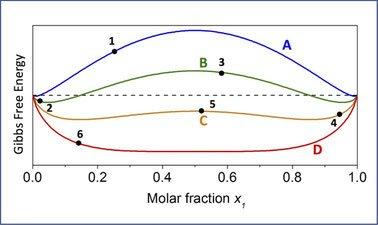MOOC List is learner-supported. When you buy through links on our site, we may earn an affiliate commission.

MOOC List is learner-supported. When you buy through links on our site, we may earn an affiliate commission.
Microstructural Evolution of Materials is intended for engineering and science students and professionals with an interest in materials statistics, kinetics, and microstructural transformations.
Part 1 of the course will introduce important concepts in statistical mechanics that are especially relevant to materials scientists. Topics include solid solutions, the canonical ensemble and heat capacity.
Part 2 of the course focuses on point defect evolution, including diffusion, substitutional diffusion, ionic defects, and ionic conductivity.
Part 3 of the course discusses surfaces and surface-driven reactions. Topics include surface energy, faceted and non-faceted growth, and growth and ripening.
Part 4 of the course focuses on phase transformations, including nucleation and growth, precipitate growth, interface stability, and glass transition.
What you'll learn:
At the end of this course, you will be able to:
- Explain the entropy of a solid solution from a quantum mechanical perspective
- Understand the trends in heat capacity of a monatomic gas and an atomic solid
- Use the canonical distribution to explain both the effect of gravitational force on the density of a gas and the origin of Curie’s law of paramagnetism
Syllabus
Introduction
- What is an ensemble?
- The Microcanonical Ensemble
- Fluctuations in a System
- Statistical Interpretations of Entropy
Solid Solutions
- Particle Distinguishability
- Gibbs Theorem
- Ideal Solid Solutions and Ideal Gasses
- Regular Binary Solution Theory
- Determining Phase Composition in Binary Solution
Canonical Ensemble
- Deriving the Canonical Distribution for N=5
- Deriving the Canonical Distribution
- The Partition Function
Canonical Ensemble: Application
- Example: Effect of Gravitational Force on Gas Density
- Example: Paramagnetism Materials
Heat Capacity
- Heat Capacity of an Ideal Gas
- Heat Capacity of Atomic Solids
- The Debye Model
MOOC List is learner-supported. When you buy through links on our site, we may earn an affiliate commission.
MOOC List is learner-supported. When you buy through links on our site, we may earn an affiliate commission.
